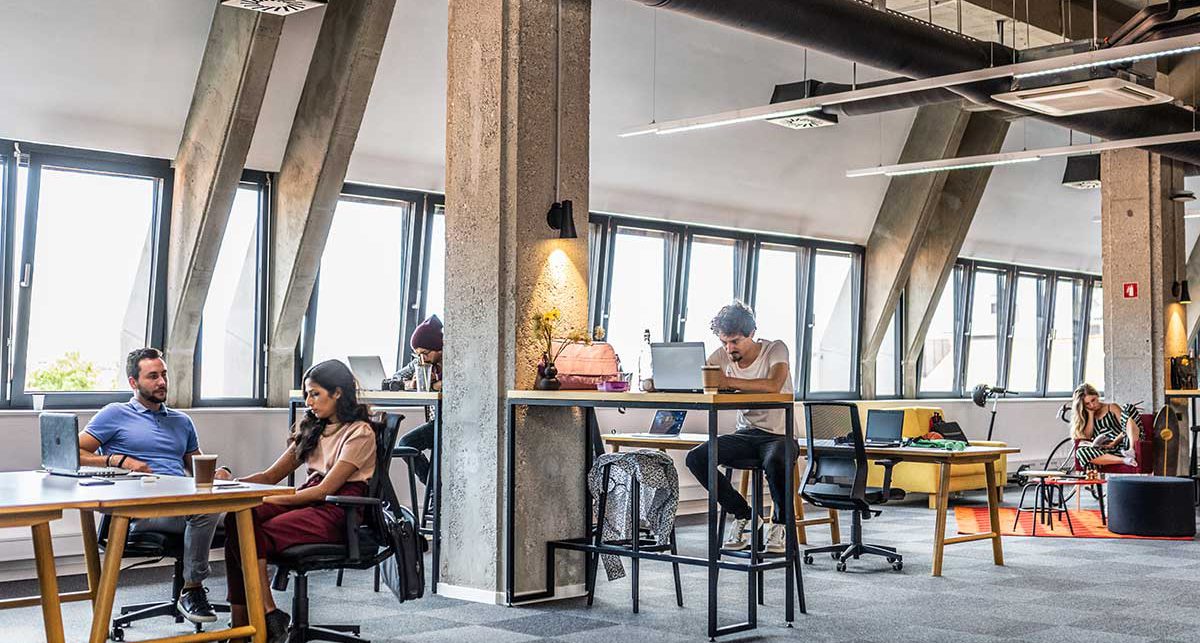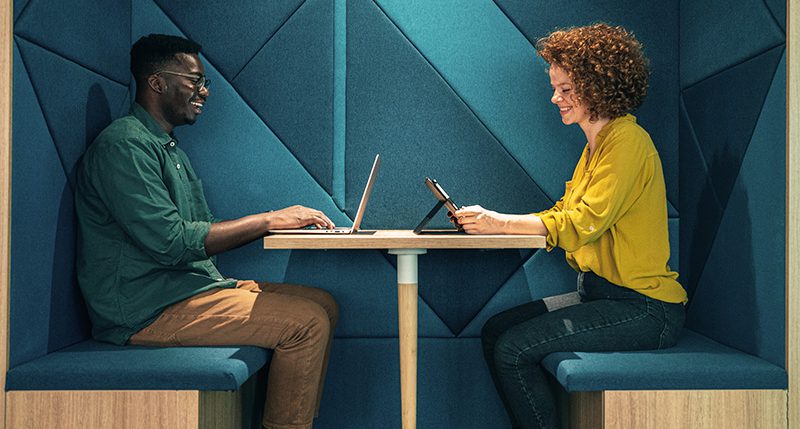
Insight
Targetfollow Team Goes the Distance at the London Marathon
2nd May 2025
9th May 2024
The COVID-19 pandemic not only caused a temporary shift toward remote work but also established a lasting preference for it. According to a 2022 Pew Research Centre survey, 76% of people working from home prefer it to traditional in-person office work. Hybrid work, on the other hand, appears to be even more popular with 52% choosing this option in a 2023 Gallup poll. With these figures in mind, it’s clear to see why coworking spaces are increasing in popularity, despite the push for a post-pandemic return-to-office. In this week’s blog, we’re exploring what workers want from a coworking space in 2024.

Video conferencing became the norm during the pandemic and even as more people return to physical offices – this trend persists. Around 77% of remote workers use virtual conferencing, indicating a demand for bookable meeting rooms and private offices within coworking spaces. Having a dedicated video conferencing area in a coworking space gives individuals the option to conduct virtual meetings in a professional environment.

Despite the overall popularity of remote work – one of the challenges is the lack of tech support. In the event of computer crashes, employees must resort to troubleshooting issues via telephone conversations.
Considering this glaring issue of work-from-home culture, coworking spaces that offer in-house IT assistance are likely to become very attractive. A 2022 Jones Lang LaSalle survey found that 3 out of 5 respondents expect technology support from their employers.
The pandemic also reshaped people’s priorities around health and well-being. Operators of coworking spaces realise this and are supporting the physical comfort and emotional wellness of members. With a variety of wellness-focused features like nap pods, specialised lighting and exercise equipment, a coworking model can help boost member efficiency and reduce stress.
While working from home has proven to be highly effective in the short-term; it is not a sustainable solution. Human beings are social animals that crave community and being confined to our individual houses is an inherently isolating experience.
A recent Indeed survey showed that 73% of respondents miss in-person socialising – coworking spaces can therefore help fill this gap. These shared office models see workers from a plethora of industries operate under one roof – this “melting pot” of professionals creates an interesting and diverse social environment for members.
Coworkers are always looking for ways to learn, grow and connect – hence why community is a keyword for businesses looking to launch a shared office space. By organising networking events, workshops, seminars and gatherings, operators can ensure a rewarding social environment for members.

At Targetfollow, we are leveraging three decades of asset management experience to venture into the coworking sector. Our newly refurbished coworking office space is coming soon Dewsbury, West Yorkshire. Featuring bright, open-plan offices with great views and full furnishing – the office is conveniently situated, with excellent road and train access to key cities like Huddersfield, Leeds, Manchester, Sheffield and Wakefield. With close proximity to the M1 and M62, it’s ideal for commuters and companies looking for a flexible, well-equipped workspace.
For the latest updates on our coworking venture and various other projects – follow us on Facebook, X and LinkedIn.